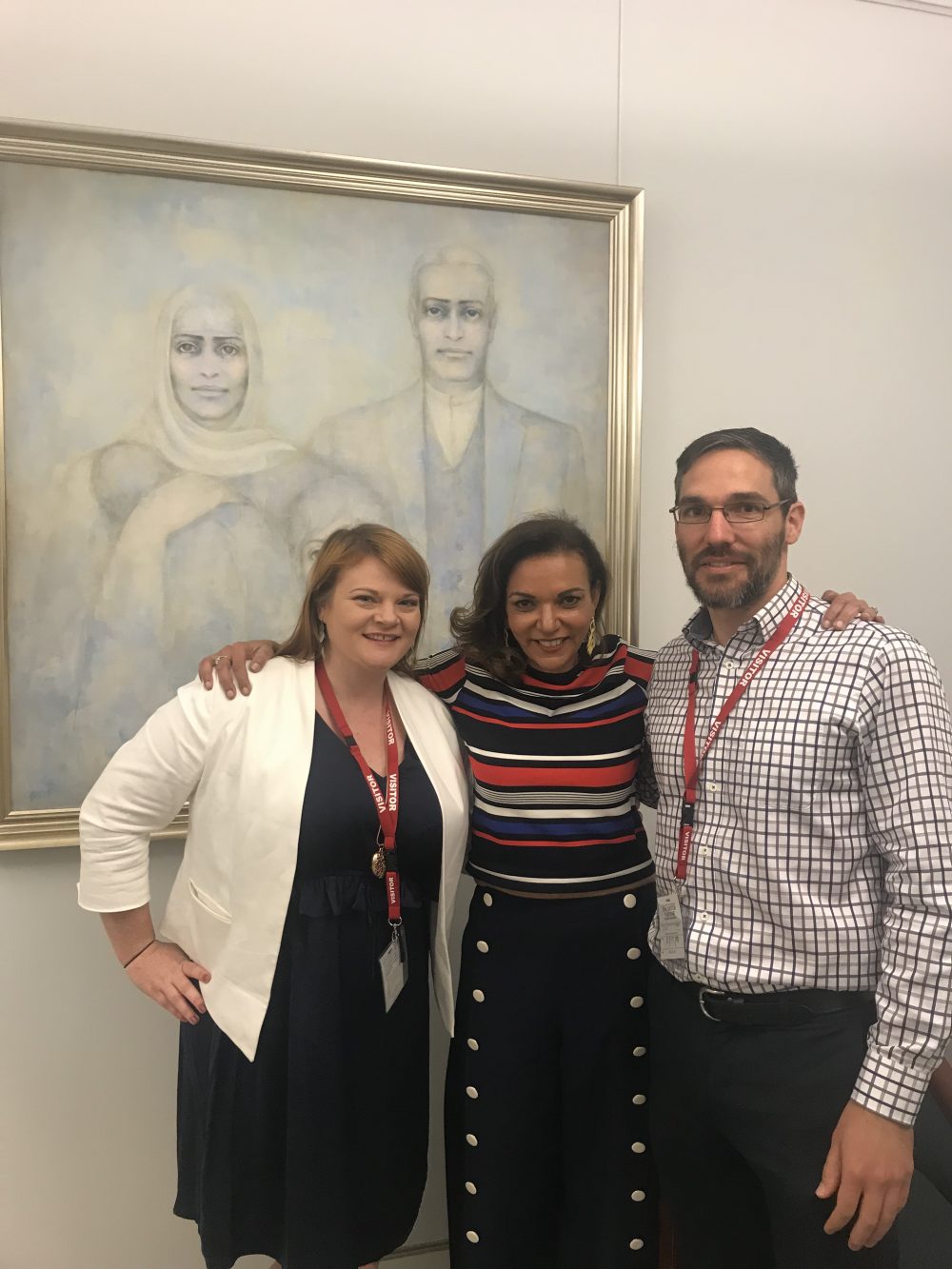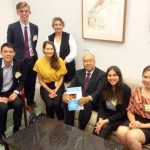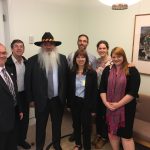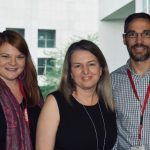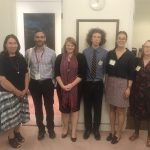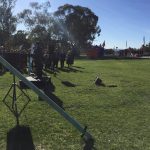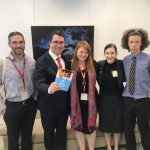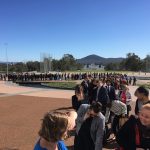Canberra is a bit of a strange place. Beautiful surrounds with an abundance of wealthier-than-most public servants, along with a somewhat Truman Show-like perfect design and apparently an invisible semi-permeable dome over the entire place (aka the Canberra bubble).
But if Canberra is peculiar, then Parliament House is another universe altogether. Like a self-sufficient satellite orbiting afar, once inside, lost in endless corridors and its mirrored layout, I wondered at times if we were still on planet Earth.
Scurrying politicians, harried staff, dinging electronic bells and eruptions of rancour in the debating halls create a continuous swirl of outrage, plotting and scoffing. I am in amazement at the energy of all these people. The sometimes intelligent, often peculiar, universally powerful and yet still very human representatives of our nation certainly have busy schedules.
As a nation, this is where our decisions get made. So this is where Kate Leaney, Social Justice Officer at the Uniting Church WA, and I went this week – along with 200 others from various churches and church-based development organisations from the Micah network, to appeal to the hearts of those within, as part of Micah Australia’s Voices for Justice.
And hearts they do have. In response to our message from people around the world who are struggling to survive the impacts of poverty, slavery or persecution, we felt (sometimes to our surprise) that we were actually heard.
Our message was remarkably simple really – we want to be generous. We want to be kind. We want to be compassionate.
And it seems like there is a willingness among our politicians that coming back to these values might just be worthwhile. Our recent history shows that we have certainly been far from these things. In truth we have been stingy and cruel.
Our level of support for international development aid has dropped to its lowest ever levels at only 0.23% of GNI. We have locked up people seeking asylum in indefinite detention. We can’t even agree to provide funding for basic housing in remote Aboriginal communities in our own country.
Is this really who we are?
Well, when we met with numerous Members and Senators elected by Western Australians to Australia’s Parliament, all were receptive to a different narrative.
The Micah team had developed a set of very reasonable requests and well-considered arguments that drew warm responses from our elected representatives. The proposals included commitments to increase our aid budget, address modern slavery and to increase funding to the UNHCR to ensure they have the resources to support and resettle refugees in a timely manner.
But a key piece of feedback that was regularly given ran something like: “If you want more action on these topics we need to hear from more people in our electorates.”
And that is where you come in. We need you to write to your local federal member.
We need as many people as possible to say that Australia, as a wealthy nation, needs to be doing our fair share for the 5.4 million children per year that die before their fifth birthday, for the 25 million people trapped in forced labour and for the 68.5 million people forcibly displaced from their homes – the majority of whom are hosted by developing countries (85%).
This is our work as the church. This is what it means to love our neighbour. So in advance we thank you for the letters we know you will send.
Geoff Bice, Social Justice Consultant, Uniting Church WA
